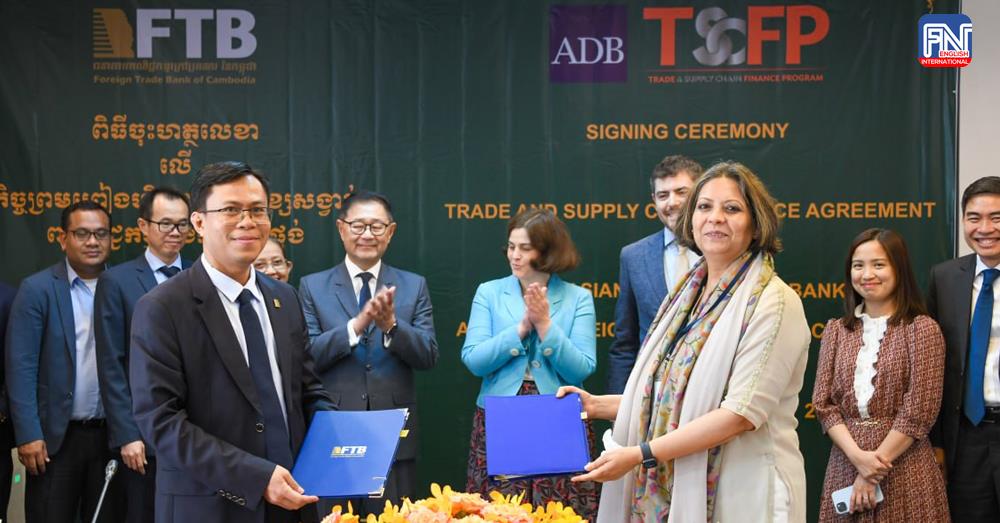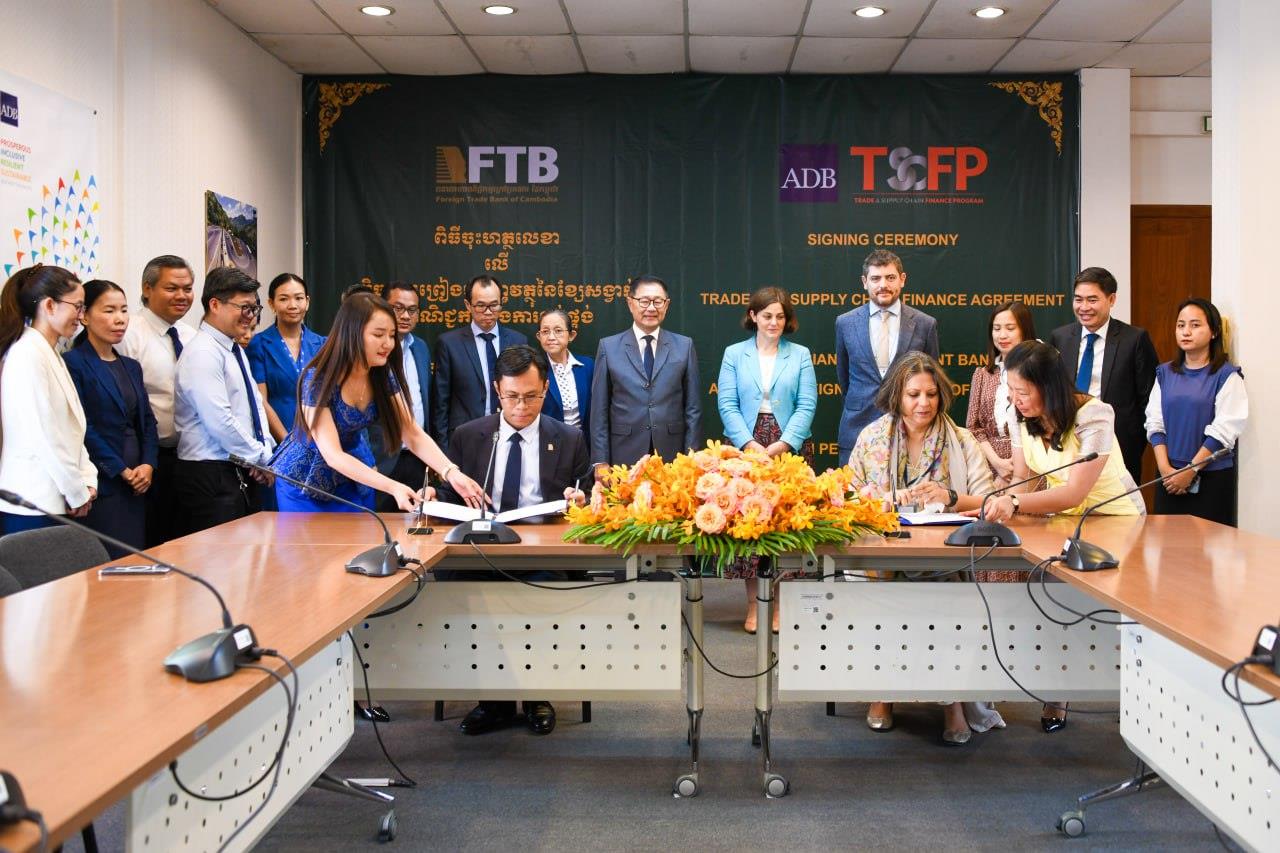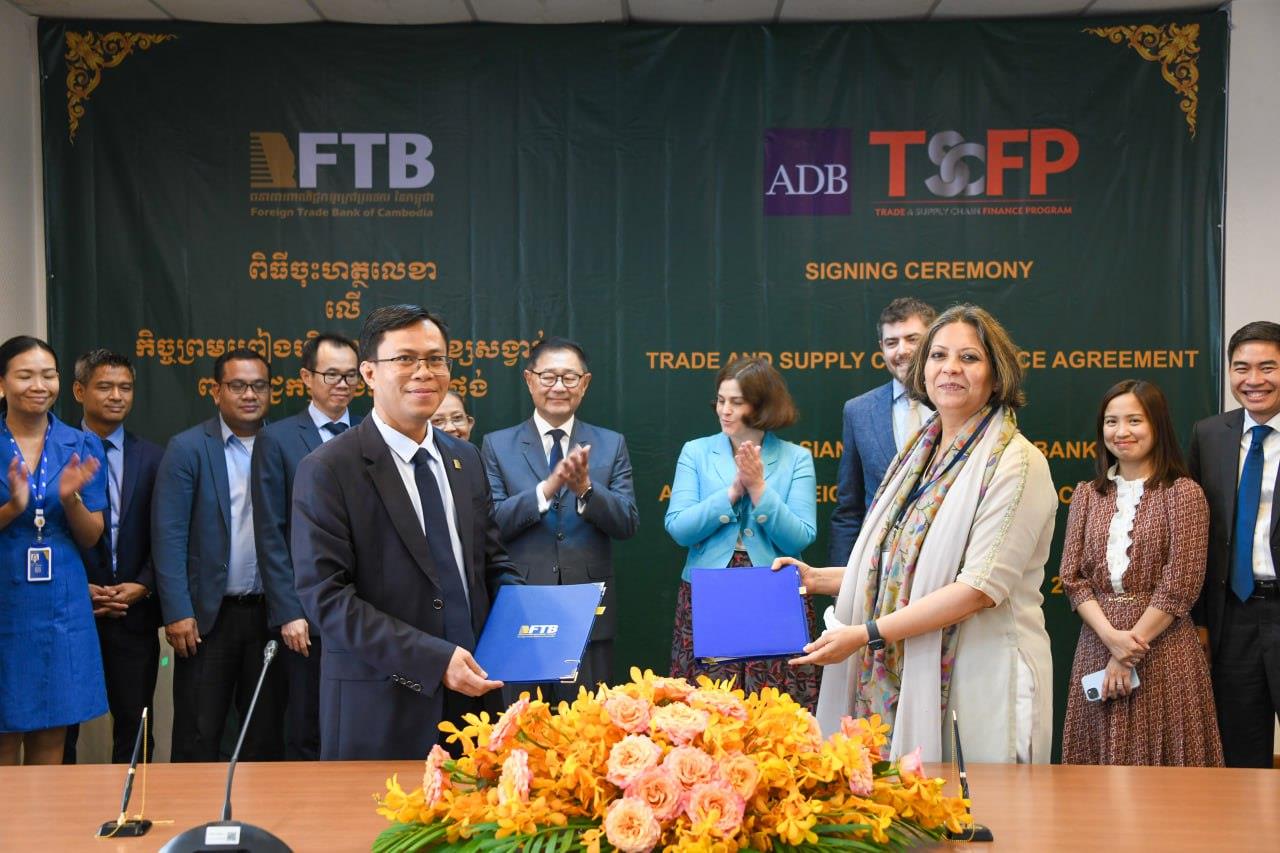Phnom Penh, Feb. 8 (ADB) — The Foreign Trade Bank of Cambodia (FTB) has joined the Asian Development Bank’s (ADB) Trade and Supply Chain Finance Program (TSCFP) to boost trade finance in Cambodia, especially for the country’s micro, small, and medium-sized enterprises (MSMEs).
ADB Country Director for Cambodia Jyotsana Varma and FTB’s Chief Executive Officer Dith Sochal signed the deal today at ADB’s Cambodia Resident Mission in Phnom Penh.
“The agreement is part of ADB’s private sector development initiative to promote the sector’s participation in Cambodia’s economic diversification,” said Jyotsana Varma. “It will fill market gaps by providing financing through partner banks to support trade and MSMEs, representing about 99% of all enterprises in Cambodia.”
As a partner bank of TSCFP, FTB will provide support to corporate and MSME clients in Cambodia by allowing trade finance instruments issued by FTB to be covered by TSCFP’s credit guarantees. This assistance is expected to help increase the number of international banks engaged in the Cambodian market.
Trade is an essential part of economic development in Cambodia, and this new collaboration will provide further opportunities to expand support for regional and international trade and commerce. ADB is one of the country’s largest sources of official development assistance, with an average annual lending of USD363.28 million from 2019 through 2023.
To make the collaboration as effective as possible, FTB has already been working with TSCFP to boost its knowledge and skills in trade facilitation. TSCFP has helped build capacity within FTB on report preparation, good practices, innovative strategies, training modules, and performance measurement.
Backed by ADB's AAA credit rating, TSCFP provides loans and guarantees to more than 200 partner banks to support trade, boosting imports and exports that foster growth. Since 2009, TSCFP has supported USD57 billion in trade in more than 45,000 transactions in emerging markets.
ADB is committed to achieving a prosperous, inclusive, resilient, and sustainable Asia and the Pacific, while sustaining its efforts to eradicate extreme poverty. Established in 1966, it is owned by 68 members—49 from the region.
=FRESH NEWS


